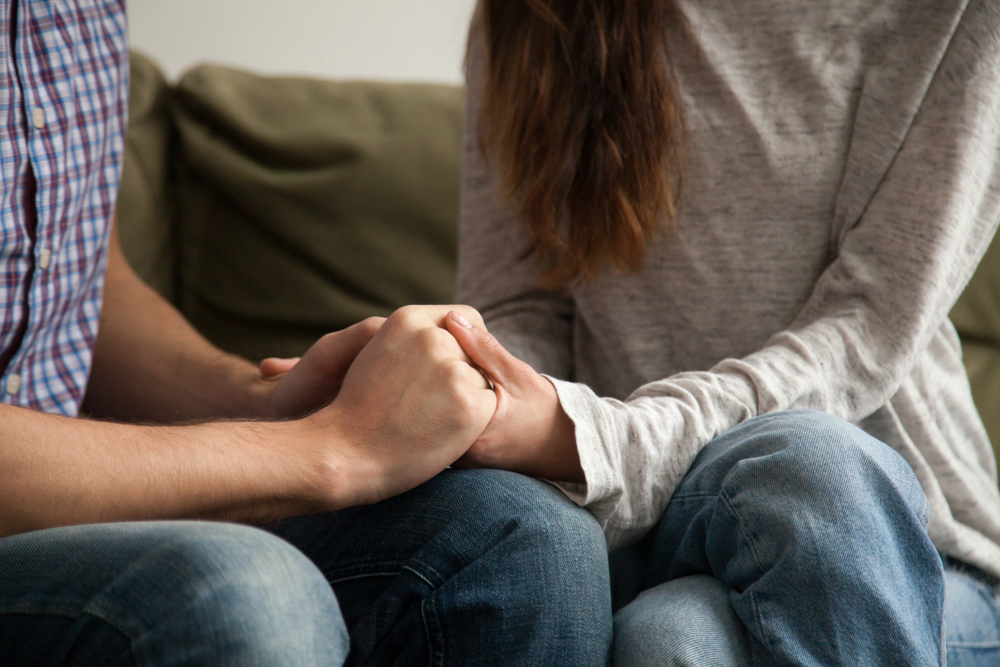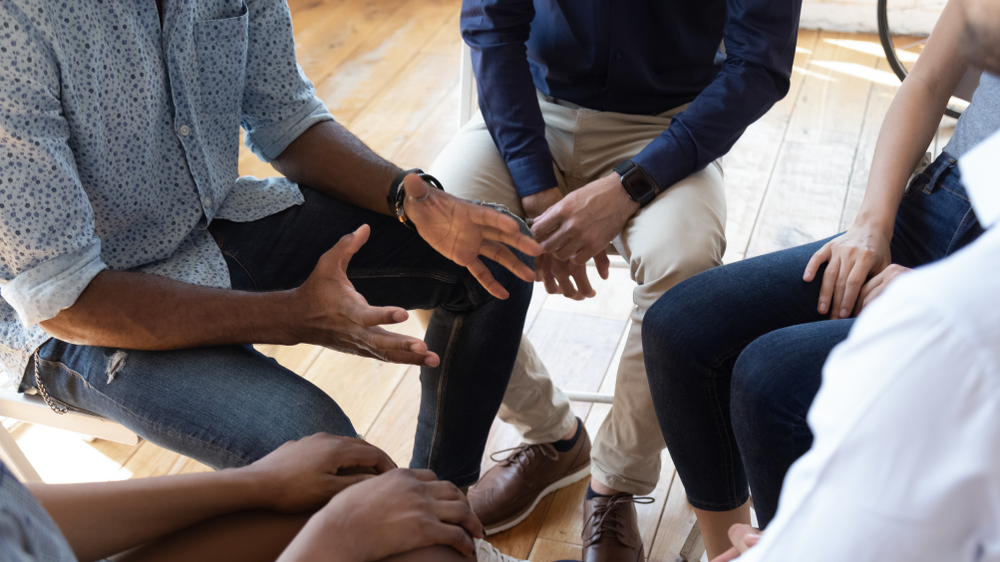Being in an abusive relationship is one of the most traumatic experiences that anyone can go through in their life. Abuse is usually one of the following:
- Verbal: A partner uses hurtful or offensive language, is extremely critical, snappy, moody and rude.
- Emotional: Usually includes accusations, jealousy, possessiveness and trying to control the other person’s behavior, friendships, and thoughts. Emotional abuse can be hard to spot as it’s highly manipulative and often concealed as “caring so much for the other person”.
- Gaslighting: A form pf psychological abuse where one partner makes the other question their entire sanity, memories, or even view of the world.
- Sexual and physical: Includes bondage, assault, rape, and harm that isn’t consensual.
None of these forms of abuse are justifiable. Why would anyone do this to the person they are with…? Usually, the abuser would apologize or pretend nothing happened after abusing their partner. It might even be followed by periods of extreme care, love and intimacy – but these periods never last for long.
In order to date someone who was in an abusive relationship, you need to start by understanding what they went through and how it affected them. This can be really hard because victims of abuse often suffer from trauma, PTSD, and high levels of shame associated with their experience.
Show them that talking about it won’t change how you view them – and that it’s actually a really brave thing to do. If the details are too much for them to talk about, just show them you are there to listen when and if they are ready.
Table of Contents
What is an abuse survivor like in a romantic relationship?

The main things you will need to deal with are extreme lack of self-confidence, fear of commitment and mistrust.
Their self-esteem has been damaged, they have been hurt time and time again and it will be a while until they feel like they can be safe around others. Your partner probably went through a combination of abuse, so they associate a romantic relationship with the feeling of being attacked, hurt and mistrusted.
An abusive partner might have said any of these on a regular basis to them:
- “You deserve this. You’re nothing.“
- “You made me hit you.”
- “See what you made me do?! It’s all your fault!”
- “No one will ever love you like I do!”
- “I’m the only one you cares about you!”
- “Don’t you dare tell any of this to anybody…”
- “You can’t leave me!“
This daily abuse is almost impossible to eradicate from one’s psyche. Talking through it will always help, but it won’t be an overnight cure.
An abuse victim might be mistrustful of your kindness. Any romantic gestures can be perceived as leading onto more abuse. How can they trust that you only mean well? After all, the last time they trusted someone, they were hurt over and over again.
You need to know that despite the mistrust they will still be grateful for your kind gestures, your time, support, and thoughtful gifts. They are going through a healing process, and showing that you are there for them is all that matters at this stage.
Why does an abuse victim startle easily?

If you are dating someone who was in an abusive relationship, you may have spotted some unusual behavior including being easily startled. Your partner might flinch at rapid movements or even jump at a loud sound.
They will be associating certain settings, environments, sounds and noises with the abuse they went through (i.e.: certain physical movements like raising a hand or standing up too quickly). Make sure you are aware of their sensitivity and try to minimize these triggers as much as you can.
What about intimacy? How forward can you be?

An abuse victim might find it difficult to get physical with you, because the memories are too strong. So, if they want to wait a while before sleeping with you, then understand that it has nothing to do with how they feel about you – it might just take them a while.
They want to trust you and show you their love, but being vulnerable again is a hard process.
Why won’t they say, “I love you”?

Someone with a difficult past won’t be too quick to open up about their feelings, especially early on. So, if you want them to say “I love you”, you might be anticipating a little too much.
Actions speak louder than words, so trust that if they are with you, then they care. If you feel ready to say that you love them, just do it. Life’s too short!
Why does it seem that they are constantly picking fights?

An abuse victim might unintentionally try and sabotage the relationship out of fear. When you are driven by low self-esteem, fear of commitment, and fear of being hurt, a good relationship might just feel too good to be true.
They may pick up a fight often, or be difficult just for the sake of it, because they are afraid of being too attached or co-dependent. It’s important to reassure your partner that opening up to you and putting an effort into the relationship won’t scare you away, and won’t make you turn into an abusive possessive partner.
You will probably find yourself reminding them often that you aren’t their ex – that you are kind, supportive, loving, and wouldn’t hurt a fly. As hard as it may be for them to see, you need to put in the time to prove it day in and day out.
Woah! Now, they are suddenly way too attached. What should you do?

One of the main hurdles when dating someone who was in an abusive relationship is getting them to trust you and see that you are nothing like the person who used to hurt them. But once they get to know you and realize that they have nothing to fear, the abuse victim might suddenly turn into the exact opposite – and get attached very quickly.
They may become a bit clingy and dependent on you because they know you are a safe person to be with. Someone who’s been hurt in the past will be desperate for stability, love, and constant positive affirmations. They might want to spend all their time with you, meet your family early on, and do a lot of things together.
It’s important not to lose yourself in the relationship or forget to look after yourself in the midst of it all. Try explaining that their pace might be a bit too fast for you, that there’s no rush, and that things will still be nice while moving at a slower pace.
Show them stability.

Having been hurt by someone you love, regardless of how long it was going on for, means that they will likely seek a lot more predictability and consistency in their current relationship. Make sure there are no unexpected surprises and no lies.
In order to show them you can be trusted you need to show up – literally! Stick to the plans you’ve made with them, and don’t overreact if something doesn’t quite work out. They want peace, calmness and care – so be sure to embody those qualities.
Be there, but avoid being their “caretaker”.

While you may naturally feel like you need to do more to help your partner, acting like a caregiver could damage the relationship by making them feel completely helpless or dependent on you.
Nobody wants to feel pitied, and it’s literally a passion killer in relationships.
The best thing you can do for them is to help them rebuild their confidence, build their backbone, and find happiness again. Make sure you don’t overstep and take over their entire life.
It’s their healing and growth process; you are just along for the ride.
Therapy can help – if they are open to it.

Encourage them to seek professional help if they don’t feel like they are getting better and it’s harming the relationship between the two of you. There are things therapists can say and do that you simply can’t, and that’s okay.
Learn their triggers.

While you shouldn’t walk on eggshells around them, you should try to truly understand what triggers and upsets them. One of the best ways to help is by simply educating yourself on what it feels like to be an abuse survivor.
Certain phrases, sounds and situations may always be a trigger, so it’s best to avoid them altogether. If they aren’t comfortable being at a loud party, don’t make them go just because you feel like it. And, whatever you do, avoid saying any of the following phrases to them:
- “It’s all in your head.”
- “You’re making things up.”
- “It’s really not that bad.”/”It can’t be that bad!”
- “You’ll be fine, you’ll see.“
If you know their biggest triggers and still try to make them do things that you know will make them feel horrible, then get ready to be dumped. Nobody wants to be reminded of the trauma they’ve had to live with.
What can you do when they’re just not ready for a loving relationship?

A person who suffered through abuse will likely feel completely unworthy of a loving relationship. They will be scarred by their previous partner, and might constantly feel like they have to look over their shoulder.
They will constantly search for signs that it isn’t going well, that they can’t trust their partner, or that they just don’t deserve to be happy which is why it’s essential to show them that it takes courage to love, open up, and be vulnerable.
Remind them how lovable they are and how much they mean to you by using reassuring language, including:
- “I love you and I’m here for you, no matter what.”
- “You didn’t deserve to be hurt.”
- “You cannot possibly do anything to deserve being hurt.”
- “I would never hurt you.”
- “You deserve to be happy.”
- “You deserve to be loved.“
When it comes to dating someone, who was in an abusive relationship, there is no one size-fits-all. You could read tons or books or articles to try and understand what they went through, how it felt, and why it’s so damaging, but without having experienced abuse yourself there’s really no way to fully understand it.
Empathy is a big first step in getting closer to an abuse survivor. Just be there and listen, refrain from trying to switch to “fix it” mode, and avoid trying to make sense of why their abuser was the way they were. The last thing your partner wants to hear is you looking for excuses for their abuser or finding the fault in them.
Nobody deserves to be hurt – not ever. It doesn’t matter what they said or did, they are not responsible for the actions of another person. An abuser will make their victim believe that it was their fault, that they asked for it, and that if only they’d been X, Y and Z, it wouldn’t have happened. Those are all lies all abusers tell, and abusers don’t change.
Do you love someone who’s been hurt before? Show them how wonderful and worthy of love they are in your eyes, remind them how beautiful life is, and make sure you are there for them when they just want you to listen.
Be compassionate and have a lot of patience. You might be building an amazing relationship – but you will need to do some hard work first.




